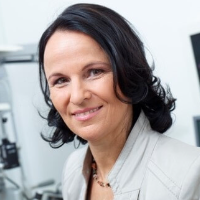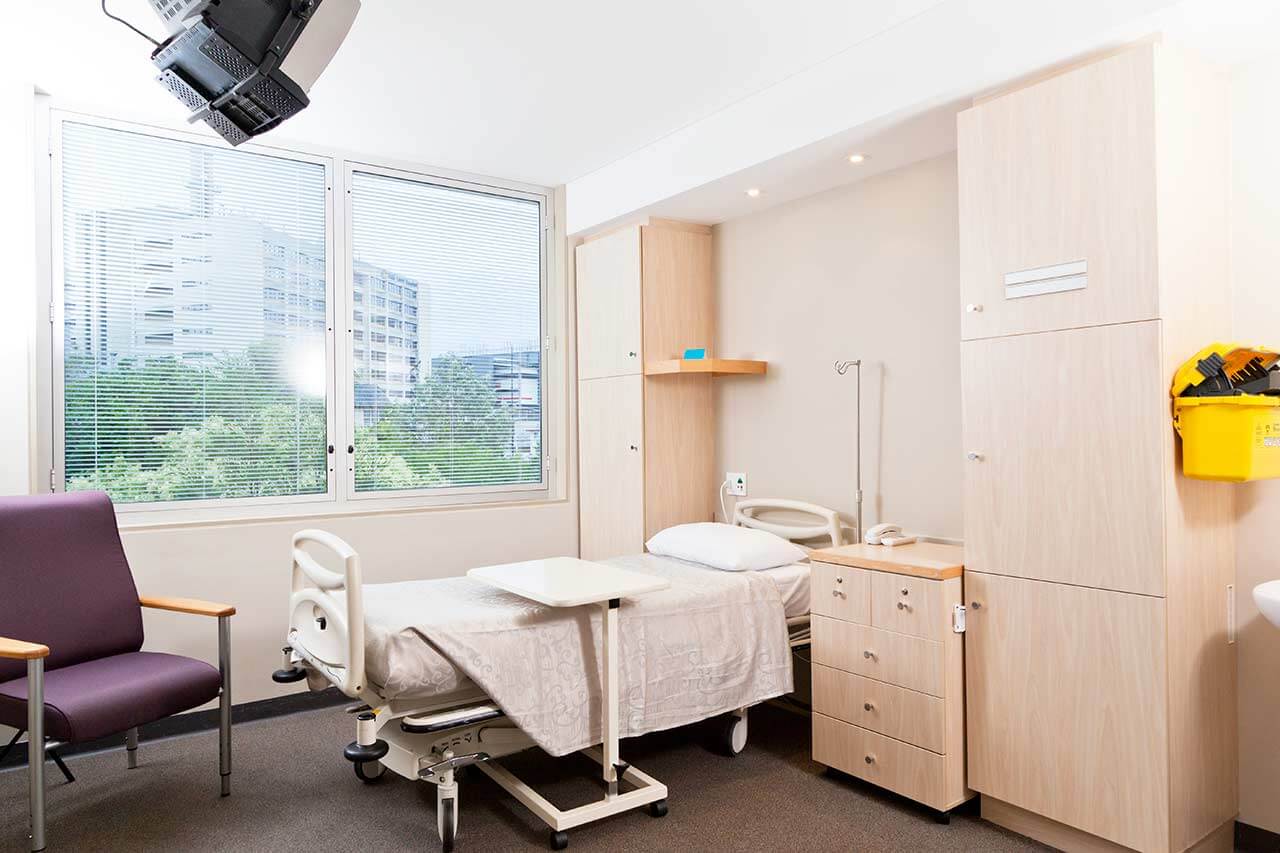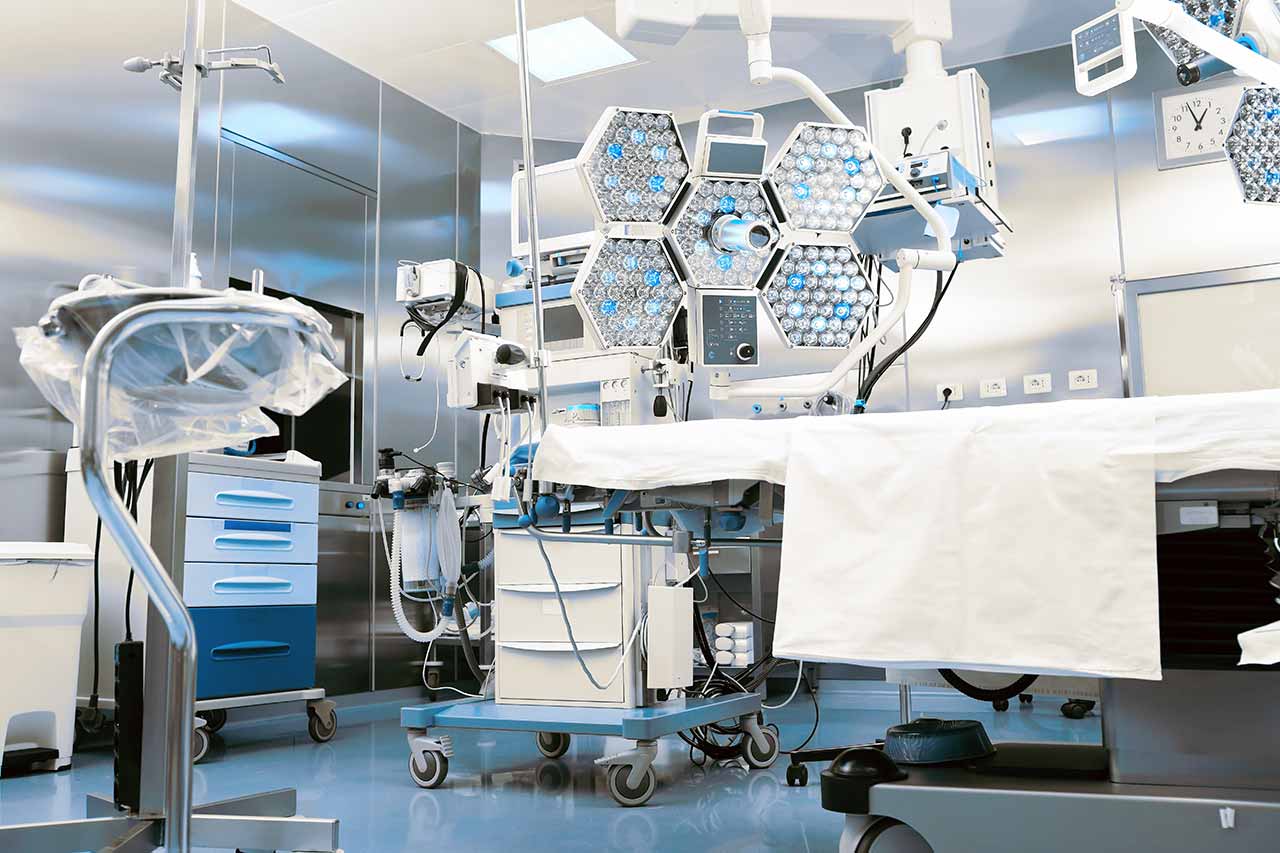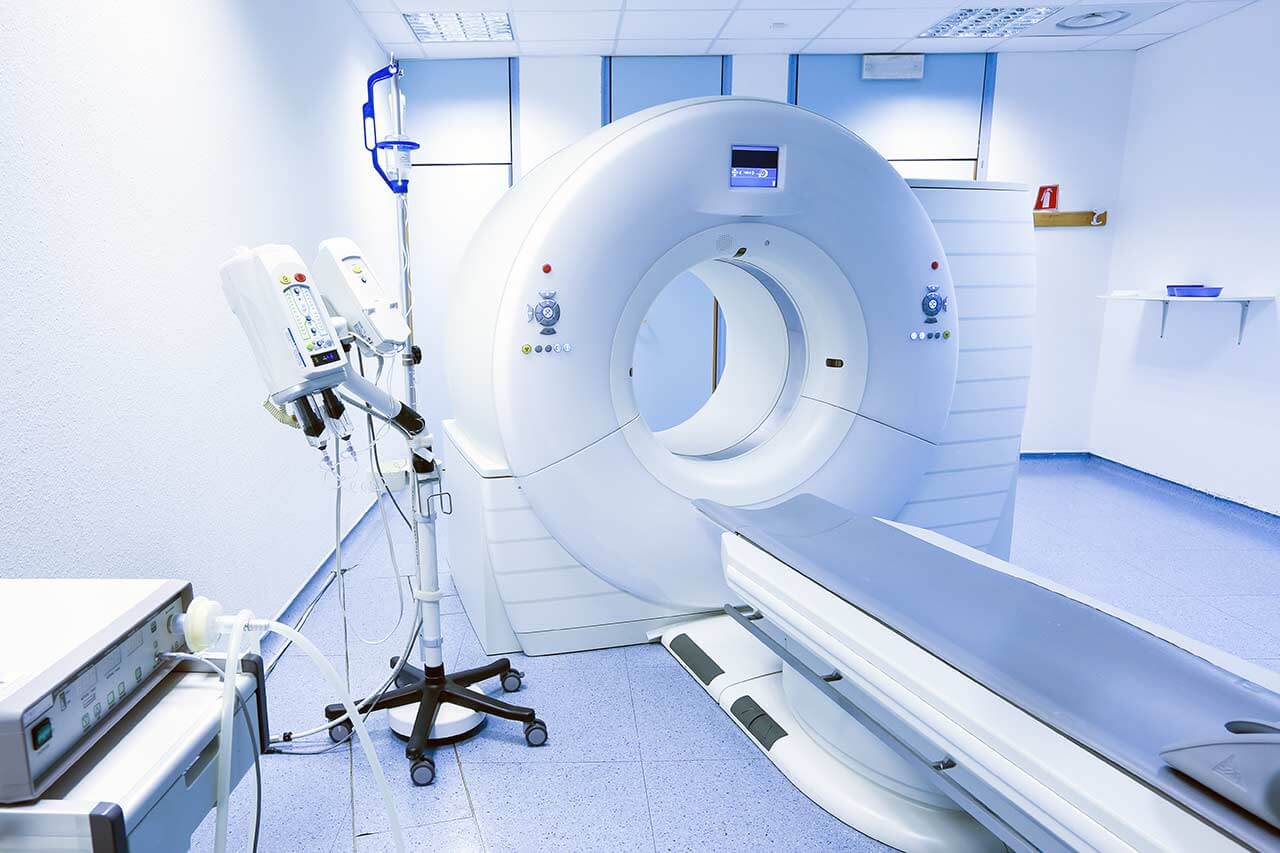
The program includes:
- Initial presentation in the clinic
- clinical history taking
- review of medical records
- physical examination
- laboratory tests:
- complete blood count
- biochemical analysis of blood
- indicators of inflammation
- indicators blood coagulation
- ophthalmologic examination:
- retinal examination
- slit-lamp examination
- pupil function tests
- ocular motility test
- ophthalmoscopy
- perimetry (visual field test)
- computer perimetry
- visometry (without correction and with correction)
- keratometry
- pachymetry
- refractometry (objective, subjective, cycloplegic)
- autorefractometry
- non-contact tonometer
- biomicroscopy
- preparation according to preoperative standard
- cataract treatment by cataract extraction and intraocular
ens (IOL) implantation with laser trabeculoplasty (LTP) - symptomatic treatment
- control examinations
- the cost of essential medicines and materials
- nursing services
- explanation of future recommendations
Required documents
- Medical records
Service
You may also book:
 BookingHealth Price from:
BookingHealth Price from:
About the department
Thanks to the medical equipment of the latest generation, the Department of Adult and Pediatric Ophthalmology at the Beta Klinic offers the full range of medical services. The department specializes in the treatment of age-related macular degeneration, treatment of cataract, glaucoma and diabetic retinopathy. In addition, the department is famous for conducting the top-class level ophthalmic diagnostics. The doctors of the department develop a clear and individual treatment plan for each patient. The Chief Physician of the department is Dr. med. Claudia Inhetvin-Hutter.
The department is the recognized Center for Eye Surgery. All laser treatments are available here, including LASIK, PRK and LASEK. These methods can differ in terms of clinical indications and the course of the operation. The most common treatment method for eyesight problems is the LASIK technique. The department also offers the so-called pars plana vitrectomy, which involves a total or partial removal of the vitreous body. An intravitreal administration of medications, which is also successfully provided on the basis of the department, has a great number of benefits for patients.
The department offers the following types of diagnostics:
- Eye pressure and visual acuity measurement
- Digital fluorescence angiography (examination of the contrast bottom agent)
- Electrophysiology (measurement of signals in the nervous system), wavefront analysis (measurement of optical errors)
- Endothelial biomicroscopy (examination of the inner wall of the cornea)
- Ophthalmological screening for premature infants
- Heidelberg Retinal Tomography (HRT): three-dimensional analysis of the optic nerve in glaucoma
- Pentacam (front tomography, structural measurement of the cornea and lens condition)
- Orthoptic Room / Pediatric Ophthalmology
- Spectral optical coherence tomography: high-resolution macular diagnostics
- Ultrasound diagnostiсs, pachymetry (measurement of the cornea thickness)
The department’s spectrum of surgical services:
- Macular degeneration treatment
- Vitreous surgery (vitrectomy, intravitreal surgical administration of drugs)
- Surgical treatment of cataract and glaucoma
- Laser treatment of retinal diseases
- Eyelids surgery in the case of malformations and tumors
- Surgical treatment of retinal detachment
- Refractive surgery (change in refractive power) and laser treatment of ametropia (LASIK)
- Ultraviolet corneal cross-linking (corneal stitching) in keratoconus
- And other surgical treatment options
Curriculum vitae
Dr. med. Claudia Inhetvin-Hutter specializes in ophthalmology and eye surgery, specifically in the retinal and vitreal surgery, as well as eye laser surgery.
- 1984 - 1986 Study of Biology at the Rhenish Friedrich Wilhelm University of Bonn, Germany, Bachelor’s Degree.
- 1986 - 1992 Study of Human Medicine at the Rhenish Friedrich Wilhelm University of Bonn, Germany.
- 1993 - 1994 Internship as a Doctor at the University Eye Clinic Bonn, Germany, Prof. Dr. med. M. Spitznas.
- 8/1994 Admission to medical practice.
- 6/1995 PhD thesis defense.
- 3/1997 Medical Specialist in Ophthalmology.
- 1997-2008 Senior Physician at the University Hospital Bonn, Germany, Prof. Dr. med. M. Spitznas, Prof. Dr. med. F. Holz.
- 2009 - 2011 Professional cooperation with Prof. Dr. med. W. Hunold in Aachen, Germany, inpatient doctor of choice at the Marienhospital in Aachen, Germany, Contract Physician of the North Rhine Medical Association (KVNO).
- Since 10/2011, professional cooperation with Dr. S. Roth, Dr. K. Roth and Dr. F. Roth in Bonn, Germany, Medical Assistant at the St.-Josef-Hospital in Bonn Beuel, Germany, Contract Doctor of the North Rhine Medical Association (KVNO).
Qualifications
- 1998 Specialization in Laser Surgery, North Rhine Medical Association.
- 2002 Qualification in Diving Medicine, Society of Diving and Hyperbaric Medicine.
- 2003 Advanced training in Ultrasound in Ophthalmology, German Society of Ultrasound in Medicine.
- 2005 Expert in TÜV Rheinland and LGA InterCert GmbH, responsibilities: evaluation of management systems according to DIN EN ISO 9001.
- 2007 Additional qualification in medical quality management, Medical Association of North Rhine.
- 2007 Moderator training, Medical Association of North Rhine.
Memberships
- German Association of Ophthalmologists (BVA).
- German Society of Ophthalmology (DOG).
- German Retina Society (RG).
- Rhine Westphalia Ophthalmologists Association (RWA).
- German Uveitis Working Group (DUAG).
- Diving and Hyperbaric Medical Society (GTÜM).
- German Society of Ultrasound in Medicine (DEGUM).
- Association of Ophthalmic Surgeons (VOA).
- Association of German Ophthalmic Surgeons (BDOC).
- Commission for Refractive Surgery (KRC).
Photo of the doctor: (c) Beta Klinik Service-, Verwaltungs- und Forschungs- GmbH
About hospital
The Beta Clinic Bonn is a modern private healthcare facility with 20 specialized departments. In addition, the clinic cooperates with 30 independent doctors of various specializations, most of whom have their own private practices. The doors of the clinic first opened for patients in 2008. Since that time, the medical facility has expanded significantly and achieved outstanding success. It harmoniously combines state-of-the-art equipment, high levels of competence among doctors, and comfortable infrastructure. All these possibilities make it possible to provide patients with high-quality medical care in accordance with modern European standards. The work of the medical team at the clinic is based on the following principle: "Our task is to take care of the health of patients." The clinic provides comprehensive treatment, taking into account the individual needs and wishes of each patient.
The hospital has an excellent diagnostic base: rooms for instrumental diagnostics, imaging tests, and endoscopic procedures. The medical complex also has in-house laboratories with advanced equipment. The clinic's doctors have the opportunity to perform comprehensive diagnostics in the shortest possible time and detect the slightest pathological changes in the work and structure of the internal organs. When considering the diagnostic results in complex clinical cases, physicians from related specialties are often involved in the process so that all important aspects are taken into account when developing a treatment regimen for a patient.
The therapeutic options at the clinic are quite diverse. At the same time, doctors always strive to keep pace with innovations, carrying out treatment using the most modern and sparing techniques. The operating rooms at the clinic have advanced computer equipment, navigation devices, monitoring systems, surgical microscopes, special tools, and equipment for laparoscopic and endoscopic interventions, as well as laser systems. The clinic also has an in-house Rehabilitation Center, where patients undergo physiotherapy and therapeutic exercises.
The clinic is expanding more and more every year. Innovative developments in diagnostics and treatment are immediately introduced here. It is worth noting that the clinic is a pioneer in Germany in advanced laser treatment for epilepsy. The therapy was implemented into clinical practice in 2019 and has been successfully applied here since then.
Photo: (с) depositphotos
Accommodation in hospital
Patients rooms
The patients of the Beta Clinic Bonn live in comfortable single rooms. Each room has a separate bathroom with a shower and toilet. The rooms have a modern design and meet the standards of a high-class hotel. For the convenience of patients, the rooms are equipped with electrically adjustable beds, air conditioning, satellite and Internet TV, a telephone, and Wi-Fi.
The clinic also offers accommodations in enhanced comfort rooms. Such patient rooms have a more refined design. In addition, they are very spacious. Enhanced comfort rooms have a minibar, daily fresh fruit, and a special dinner menu. Most windows of the clinic's patient rooms offer a beautiful view of the Rhine River and beautiful green landscapes.
Meals and Menus
The patients of the clinic are offered balanced, delicious food: a buffet breakfast, a hearty three-course lunch, and a light dinner. Also, for dinner, one can taste special offers from the chef at the hospital restaurant, which, if desired, can be served to the patient room.
Further details
Standard rooms include:
Accompanying person
Your accompanying person may stay with you in your patient room or at the hotel of your choice during the inpatient program.
Hotel
You may stay at the hotel of your choice during the outpatient program. Our managers will support you for selecting the best option.
In the immediate vicinity of the clinic is the Kameha Grand, a five-star hotel. The exterior and interior of the hotel impress with their beauty. In addition, the hotel is famous for its excellent service. The hotel is located on the banks of the Rhine and offers picturesque views from its windows.





